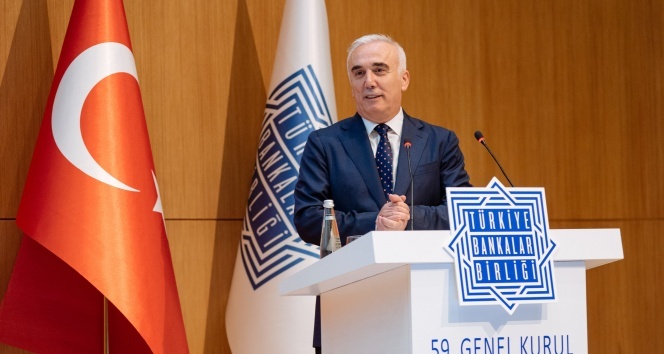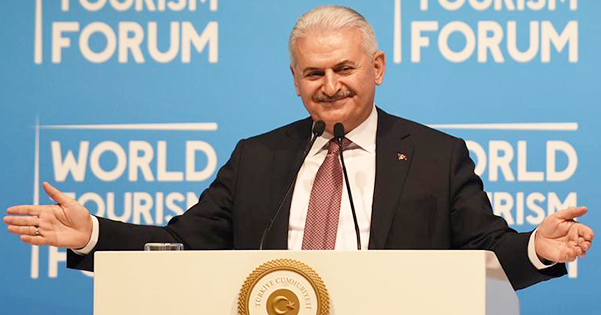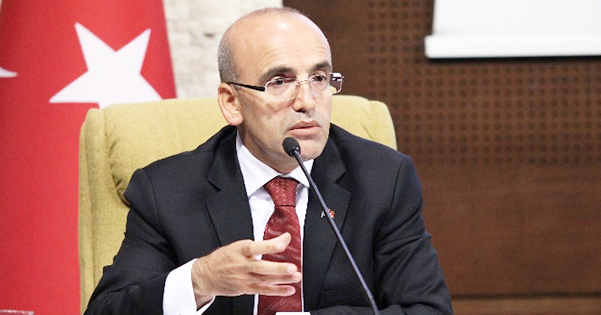The chairman of the Banks Association of Turkey (TBB) and Ziraat Bank General Manager Hüseyin Aydın evaluated the country’s economy and its banking sector at the TBB Board Members meeting.
Referring to President Recep Tayyip Erdoğan’s call on banks to avoid keeping money in the bank and sitting on it, Aydın said criticism of this issue addressed the general practice.
Suggesting that converting deposits collected by banks into loans would contribute to employment and economic growth, Aydın said the Turkish banking system has converted all deposits that it collects into loans, adding that if there were banks that failed to do so, they should not let the money sit idly at the bank deposits but bring it into the economy.
Saying that the Turkish banking system achieved credit growth in the first nine months in the last quarter of last year, along with other measures, regulations and risk appetite, Aydın noted that with regard to deposits and liquidity, the Central Bank of the Republic of Turkey (CBRT) and the Banking Regulation and Supervision Agency (BDDK) are making efforts to provide them with significant opportunities.
“When we find this opportunity, we convert the deposit into loans. We should not sit on the money. We are on the same page with Mr. President,” Aydın said.
The ‘Fitch effect’
In response to a question on the effect of reducing the risk ratio applied to foreign currency-denominated required reserves held by the banks at the CBRT from 50 percent to zero on their capital adequacy ratios, Aydın noted that it will contribute roughly 70 basis points.
Meanwhile, Garanti Bank General Manager Ali Fuat Erbil said the BDDK’s decision will contribute 10 basis points to the bank when evaluated together with the effect of Fitch.
Erbil stressed that due to the reserve option mechanism implemented by the CBRT for the last few years, Turkish banks have started to hold foreign exchange obligations much higher than normal amount of reserves.
“There have been ongoing talks between the Basel Committee and the BDDK. During these negotiations, the BDDK notified the bank that these weights should be taken as zero, like they used to be. The effect of Fitch comes to us as a minus, and the final arrangement comes as a plus,” Erbil said.
Faik Açıkalın, general manager of Yapı Kredi also stated that following Fitch’s decision, the BDDK issued a letter saying that it would accept a rating from a rating agency in the Gulf.
“However, the acceptance of a Japanese or a Canadian rating agency was also in question. Therefore, each bank will evaluate the credit rating agencies on its own,” Açıkalın said.
“If Fitch’s decision affects us by about 100 units, some of it comes from currency reserves and some from Eurobonds. Nearly 30 percent of the 100 units remained above the balance sheets, and 70 percent was recovered with the final decision of the BDDK,” Açıkalın said, adding that this decision has been discussed for a long time between the BDDK and the Basel Committee and adding that the BDDK made this decision in order to lower the weight of risks on the banking system by using an initiative.
15 pct growth target for 2017
After the banking sector recorded an approximate increase of 44 percent in profit thanks to certain one-time gains such as the interest rate cuts in 2016, the sale of certain assets and the reduction of reimbursements for wages and commissions. However, currency-adjusted growth expectation for sector loans was set at 15 percent and a similar profitability growth IS not expected in 2017.
TBB Secretary General Ekrem Keskin said Turkey’s banking sector will continue to support the sustainability of financial stability and growth, announcing the loan, total assets, deposits and equity growth expectations for 2017 as 15 percent, 13 percent, 13 percent and 12 percent, respectively.
#Turkish, #bankingsector, #supports, #economy, #deposits, #money, #TBB, #HüseyinAydın














